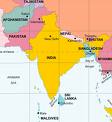But should they?
The author and journalist Owen Jones, a columnist for The Independent, is probably not many Telegraph readers’ cup of tea. He is an old-style socialist (though a young man) and I don’t suppose I find myself agreeing with more than 10 or at most 20 per cent of what he writes. But I read him regularly, because he writes well and makes intelligent, and often disturbing, points. He is one of these valuable, even necessary, journalists who makes you stop and examine your prejudices – though I quite often wish he would examine his own ones.
He had an article this week which will have raised a few hackles. He talked about “the hierarchy of death” – not his own phrase; he attributed it to Roy Greenslade, a former editor of The Daily Mirror – and asked: “Why is the slaughter in Boston more shocking or newsworthy than the deaths in Iraq?” As it happens, I had made the same point in a column I write for The Scotsman. The weekend of the Boston carnage, there was a string of car bombings across Iraq, as the country prepared for local elections. At least 32 people were killed, 15 of them in Baghdad. The death toll in Baghdad was therefore much higher than in Boston. But Boston horrified us, and news and speculation filled our TV screens, while I would guess that most of us greeted the news of the deaths in Iraq with something like indifference, if indeed we noticed it at all.
Owen Jones didn’t in any way seek to minimise or play down the horror of Boston. He admitted too that we are affected by “cultural proximity”. Americans are like us. We speak the same language, have much in common with them. We feel close to them as we don’t feel close to Iraqis. Moreover, we have come to expect that there will be bombings in Baghdad, while the idea of an event like the Boston Marathon being targeted by bombers is shocking.
All this is true. It is more natural for us to be more moved to tears or anger by what happened in Boston, just as it is more natural to mourn the death of a friend than the death of a stranger; and yet that phrase, “a hierarchy of death”, is disturbing. It is disturbing because it hits home, When a child is killed in Baghdad, the bereaved parents grieve just as bereaved parents do in Boston. Shakespeare understood this, when he gave Shylock these words to speak: “Hath not a Jew eyes? Hath not a Jew hands, organs, dimensions, senses, affections, passions? Fed with the same food, hurt with the same weapons, subject to the same diseases, healed by the same means, warmed and cooled by the same summer and winter, as a Christian? If you prick us, do we not bleed? If you tickle us, do we not laugh? If you poison us, do we not die? And if you wrong us, shall we not revenge?”
Revenge: there is another relevant, and equally disturbing, point to be made about the Boston atrocity. The USA has for years been engaged in a war against the Islamists. As in most wars, it doesn’t matter who started it; each side blames the other, and each seeks to revenge attacks made on it. The war began before 9/11, and has been pursued vigorously ever since. Recently the favoured American means of attack has been by pilotless drones. These are targeted at known or suspected terrorists, especially their leaders, but there are other victims too. It is estimated that between 1,900 and 3,500 people have been killed by drones in Waziristan, one of the tribal provinces of Pakistan. Some of the dead – no one knows how many – were civilians, among them women and children. There should be no surprise if deluded but devout young Islamists strike back. It would be wrong and wicked to say that America was asking for something like the Boston bombing to happen, but, if you are engaged in a war, you must expect that there will be casualties on your side, and some of these will be civilians – and women and children. Drone warfare has, it seems, become less discriminating. According to an ex-CIA man, Richard Blee, “In the early days, for our consciences, we wanted to know who we were killing before anyone pulled the trigger. Now we are lighting these people up all over the place. If we are going to hand down death sentences, there ought to be some accountability.” But is there?
It’s common to describe terrorist bombings as “cowardly”. I think President Obama used the word with regard to Boston. But if these deluded brothers, one now dead, the other wounded and facing a life in prison, possibly even a death sentence, were cowardly, what word would you use to describe the act of killing people thousands of miles away by projectiles directed by someone sitting in front of a screen safe in Middle America? A bomber pilot risks death; the director of a drone doesn’t. But he kills just the same.






